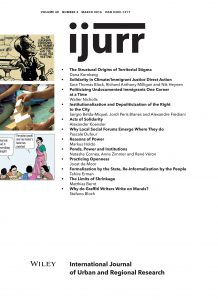Holiday Giving: The role of Charity in Capitalism
The holiday season is officially upon us as thousands of individuals woke up early on this Black Friday to score the best deals of the season. This time of year brings joy to the hearts of many, but also exposes one of the greatest contradictions in American society. Along with the excitement of holiday shopping and purchasing a 50 inch TV for half-price, this time of year is also supposed to be about giving. From Thanksgiving through Christmas more people...




1540-6210/asset/society_affiliation_image.gif?v=1&s=812a48e1b22880cc84f94f210b57b44da3ec16f9)